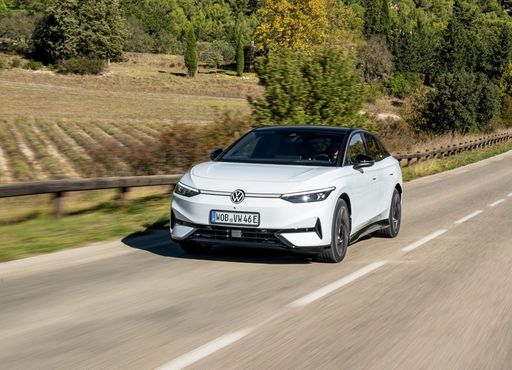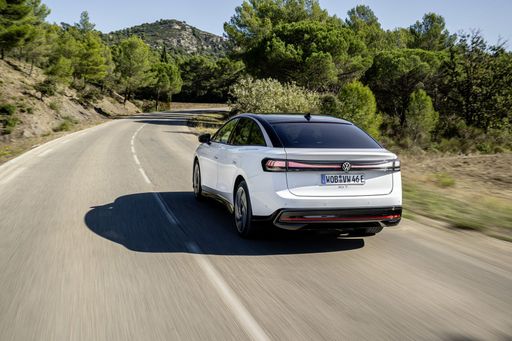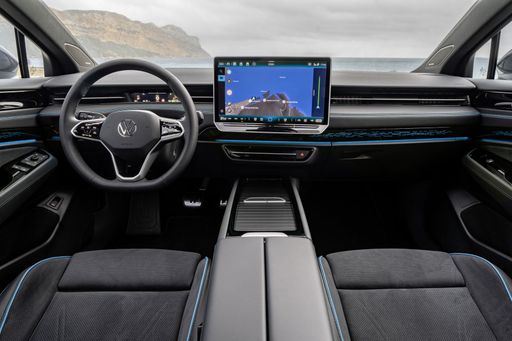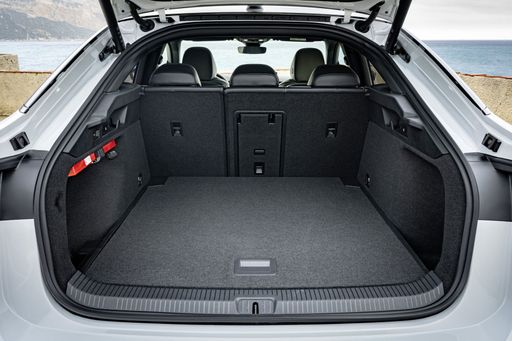Toyota Prius vs VW ID.7 – Which one offers the better deal?
Two cars, one duel: Toyota Prius meets VW ID.7.
Which one wins in performance, efficiency and value for money? Find out now!
Costs and Efficiency:
When it comes to price and running costs, the biggest differences usually appear. This is often where you see which car fits your budget better in the long run.
Toyota Prius has a somewhat advantage in terms of price – it starts at 39400 £, while the VW ID.7 costs 46400 £. That’s a price difference of around 6955 £.
As for range, the VW ID.7 performs clearly better – achieving up to 708 km, about 622 km more than the Toyota Prius.
Engine and Performance:
Power, torque and acceleration are the classic benchmarks for car enthusiasts – and here, some clear differences start to show.
When it comes to engine power, the VW ID.7 has a noticeable edge – offering 340 HP compared to 223 HP. That’s roughly 117 HP more horsepower.
In acceleration from 0 to 100 km/h, the VW ID.7 is distinct quicker – completing the sprint in 5.40 s, while the Toyota Prius takes 6.80 s. That’s about 1.40 s faster.
In terms of top speed, the VW ID.7 performs minimal better – reaching 180 km/h, while the Toyota Prius tops out at 177 km/h. The difference is around 3 km/h.
Space and Everyday Use:
Cabin size, boot volume and payload all play a role in everyday practicality. Here, comfort and flexibility make the difference.
Both vehicles offer seating for 5 people.
In curb weight, Toyota Prius is clearly perceptible lighter – 1620 kg compared to 2180 kg. The difference is around 560 kg.
In terms of boot space, the VW ID.7 offers clearly more room – 532 L compared to 284 L. That’s a difference of about 248 L.
When it comes to payload, VW ID.7 to a small extent takes the win – 465 kg compared to 375 kg. That’s a difference of about 90 kg.
Who comes out on top?
Overall, the VW ID.7 shows itself to be outperforms in nearly all aspects and secures the title of DriveDuel Champion.
It convinces with the more balanced overall package and proves to be the more versatile choice for everyday use.

VW ID.7
Toyota Prius
The Toyota Prius stands as a pioneer in the realm of hybrid vehicles, offering an eco-friendly driving alternative with its innovative technology. Its aerodynamic design and comfortable interior make it a practical choice for those looking to reduce their carbon footprint without sacrificing style. Additionally, the Prius boasts a reputation for reliability and efficiency, contributing to its lasting popularity among environmentally conscious drivers.
details @ Toyota
@ Toyota
 @ Toyota
@ Toyota
 @ Toyota
@ Toyota
 @ Toyota
@ Toyota
VW ID.7
The VW ID.7 represents a significant step forward in Volkswagen's electric vehicle lineup, offering an elegant design combined with advanced technology features. This electric saloon showcases a sleek aerodynamic profile, prioritising both performance and efficiency. Inside, drivers will appreciate the spacious and modern cabin, equipped with intuitive controls and connectivity features for a seamless driving experience.
details @ Volkswagen.de
@ Volkswagen.de
 @ Volkswagen.de
@ Volkswagen.de
 @ Volkswagen.de
@ Volkswagen.de
 @ Volkswagen.de
@ Volkswagen.de

|

|
|
|
|
Costs and Consumption |
|
|---|---|
|
Price
39400 - 45800 £
|
Price
46400 - 54200 £
|
|
Consumption L/100km
0.5 - 0.7 L
|
Consumption L/100km
-
|
|
Consumption kWh/100km
-
|
Consumption kWh/100km
13.6 - 16.2 kWh
|
|
Electric Range
72 - 86 km
|
Electric Range
594 - 708 km
|
|
Battery Capacity
-
|
Battery Capacity
77 - 86 kWh
|
|
co2
12 - 17 g/km
|
co2
0 g/km
|
|
Fuel tank capacity
40 L
|
Fuel tank capacity
-
|
Dimensions and Body |
|
|---|---|
|
Body Type
Hatchback
|
Body Type
Hatchback
|
|
Seats
5
|
Seats
5
|
|
Doors
5
|
Doors
5
|
|
Curb weight
1620 - 1630 kg
|
Curb weight
2180 - 2325 kg
|
|
Trunk capacity
284 L
|
Trunk capacity
532 L
|
|
Length
4599 mm
|
Length
4961 mm
|
|
Width
1782 mm
|
Width
1862 mm
|
|
Height
1470 mm
|
Height
1535 - 1536 mm
|
|
Max trunk capacity
-
|
Max trunk capacity
1586 L
|
|
Payload
365 - 375 kg
|
Payload
460 - 465 kg
|
Engine and Performance |
|
|---|---|
|
Engine Type
Plugin Hybrid
|
Engine Type
Electric
|
|
Transmission
Automatic
|
Transmission
Automatic
|
|
Transmission Detail
CVT
|
Transmission Detail
Reduction Gearbox
|
|
Drive Type
Front-Wheel Drive
|
Drive Type
Rear-Wheel Drive, All-Wheel Drive
|
|
Power HP
223 HP
|
Power HP
286 - 340 HP
|
|
Acceleration 0-100km/h
6.80 s
|
Acceleration 0-100km/h
5.4 - 6.6 s
|
|
Max Speed
177 km/h
|
Max Speed
180 km/h
|
|
Torque
-
|
Torque
545 - 679 Nm
|
|
Number of Cylinders
4
|
Number of Cylinders
-
|
|
Power kW
164 kW
|
Power kW
210 - 250 kW
|
|
Engine capacity
1998 cm3
|
Engine capacity
-
|
General |
|
|---|---|
|
Model Year
2023
|
Model Year
2023 - 2024
|
|
CO2 Efficiency Class
B
|
CO2 Efficiency Class
A
|
|
Brand
Toyota
|
Brand
VW
|
Is the Toyota Prius offered with different drivetrains?
Available configurations include Front-Wheel Drive.
The prices and data displayed are estimates based on German list prices and may vary by country. This information is not legally binding.
